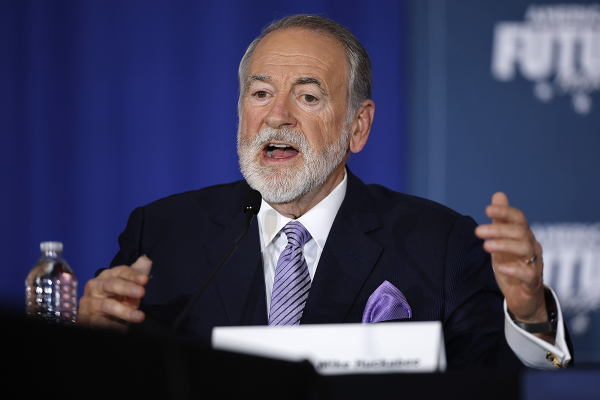Mideast Peace Talks Move Forward with Risks
WASHINGTON – In spite of low expectations from cynics and skeptics, the Mideast peace conference Tuesday was able to push through an elementary yet hopeful agreement signed by Israeli and Palestinian leaders.
President Bush announced at the closing of the conference in Annapolis, Md., that the two long-time foes have committed themselves to negotiating a peace treaty aimed to be completed by the end of 2008, or before Bush steps down from office.
A document was produced during the one-day Mideast summit that will guide the peace talks.
Both Israel and the Palestinian Authority will form steering committees, which will begin meeting Dec. 12, according to CNN. Afterwards, Palestinian Authority President Mahmoud Abbas and Israeli Prime Minister Ehud Olmert will meet every two weeks to continue negotiations on forming an official Palestinian state.
"We meet to lay the foundation for the establishment of a new nation – a democratic Palestinian state that will live side by side with Israel in peace and security," said Bush, according to the New York Times.
"We meet to help bring an end to the violence that has been the true enemy of the aspirations of both the Israelis and Palestinians," the president said before representatives of 49 nations and international organizations, including many from the Arab world.
However, Bush readily acknowledged that the peace process "is not going to be easy."
"If it were easy," he said, "it would have happened a long time ago."
But he also pointed out, "I don't think it's a risk to try for peace," to The Associated Press at the Oval Office on Tuesday. "I think that's an obligation."
There are some risks, however, including a possible Hamas-takeover of the West Bank – a threat that the Hamas leadership in Gaza has already declared – and internal factions within both states over land concession.
Abbas' government is feared to be too weak to establish law and order and root out terrorists after a Palestinian state is formed, leading many to worry that Hamas could easily take control of the West Bank as it did the Gaza Strip earlier this summer.
"The Palestinian people will not be bound by anything the Palestinian Authority agrees to in Annapolis," said Hamas leader Ismail Haniyeh in a televised address Tuesday, according to CNN.
Tuesday's document does not address the specific prickly issues that divide Israelis and Palestinians. Instead, it focuses on guidelines to steer the peace talks on contentious issues such as settlements, the role of the international community, the fate of Jerusalem, and calling Israel a "Jewish state."
Israeli Prime Minister Olmert said Israel was "prepared to make a painful compromise, rife with risks, in order to realize these aspirations" of peace.
The issue of forming a Palestinian state, or a two-state solution, was strongly supported by dozens of prominent evangelicals earlier this year.
In an unprecedented move, 34 evangelicals – ranging from presidents of some of the nation's top Christian universities and humanitarian organizations to the editor of a preeminent Christian magazine – acknowledged that both Israelis and Palestinians have rights to the disputed land.
"Historical honesty compels us to recognize that both Israelis and Palestinians have legitimate rights stretching back for millennia to the lands of Israel/Palestine," states the letter dated July 27.
Signers called for a lasting agreement to end the "tragic cycle of violence" by guaranteeing both sides "viable, independent, secure states."
To achieve the agreement both sides will be required to give up some of its demands and reach a compromise, said the evangelical leaders.
"Israelis and Palestinians must both accept each other's right to exist," they stated.
Signers included Richard Mouw, president of Fuller Theological Seminary; David Neff, editor of Christianity Today; Richard Stearns, president of World Vision; Tony Campolo, president/founder of Evangelical Association for the Promotion of Education; Stephen Hayner, former president InterVarsity Christian Fellowship; and Joel Hunter, senior pastor of Northland Church in Longwood, Fla., and member of the executive committee of the National Association of Evangelicals.
"The group is in no way anti-Israel, and we make it very clear we're committed to the security of Israel," said Ronald J. Sider, president of Evangelicals for Social Action. "But we want a solution that is visible. Obviously there would have to be compromise."
Bush will meet with Israeli and Palestinian leaders at the White House on Wednesday to help jumpstart deeper negotiations.






















